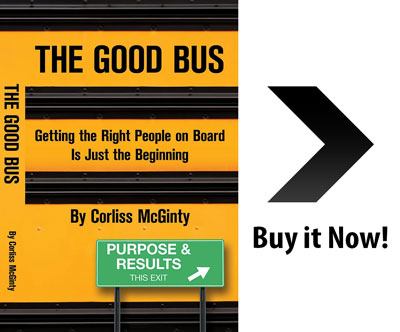We Don’t Know What We Don’t Know
The conscious vs. the unconscious mind. With the unconscious mind having the capacity to process 200,000 times more than the conscious mind, it’s worh taking a look!
The vast majority of us leaders have very little understanding of why we make the choices we do, and that we’re influenced instead by peer pressure; impulsive and reactive emotions; a deep and bottomless need for admiration and status; overconfidence in the present; excessive worry about the future; the evolutionary instinct to avoid pain and move towards pleasure; and precious little capacity to delay gratification.
In other words, we have a great capacity for self-deception when we just draw on our rational mind.
Meet Sam Turner, PhD. who gave a great talk last month on decision making. His speciality is organizational development. Go Sam!
Life is refreshingly full of choices, and we have to make sense of these choices. Let’s take food, for example. Can you take a stab at the number of food options you consider daily for meals that you eat? The average person will say something in the order of 10, 15, maybe 20. Is that close to what you got?
A study conducted at Cornell University, participants estimated they made an average of 14.4 food-related decisions, a number not terribly different from that I have heard personally. After creating an aggregated index of food decisions the participants actually made, they found that the average participant made an estimated number of 226.7 decisions about food per day!
Now mind you, I am not terribly interested in your eating habits, per se. Rather, I use this as an example to illustrate just how forgiving we are to ourselves about the number of choices we are confronted with daily. It turns out, we can’t remember how many choices we make daily about really anything. To our credit, we have developed a myriad of strategies that help us confront the overwhelming number of decisions we are confronted with daily. We have a number of useful tools that help us wage war against ambiguity and uncertainty.
We draw on experience and use a host of mental shortcuts called heuristics which are based on our view of the world. They can serve us incredibly well. Just imagine, if we are unsure of the number of food choices we make in a day, what would the day be like if we were aware? Unfortunately, we aren’t just plagued by choices on the grocery store.
These heuristics are sometimes spot on assessments, but often not. And they lead us to make biased decisions; we misinterpret what reality is, we pick something familiar, or we might feel overwhelmed if it is complicated. They allow us to make lots of decisions about things like foods, but they can lead us to make some bad decisions about more important things.
Are we doomed to live with our poor choices and decisions? No.
Follow these simple strategies and try to avoid making poor decisions:
- Engage in metacognition. This means to think about our thinking. Does this decision merit careful attention and review? A breakfast cereal merits little time, but allocations of investment income require a lot of time.
- Consult a source expert. Complex decisions require expertise and knowledge.
- Engage in a bit of what Ben Franklin called moral algebra. Write a pro and con column and look at what has more points. Realize that your instinct matters too, and pick the solution you can ultimately live with.
- Satisfice. When the choices aren’t terribly important, pick some criteria you are looking for, and when the option comes up, take it. And don’t look back.
The decisions will still be uncomfortable and complicated, but a strategy will make the process of deciding seem more friendly and efficient.


